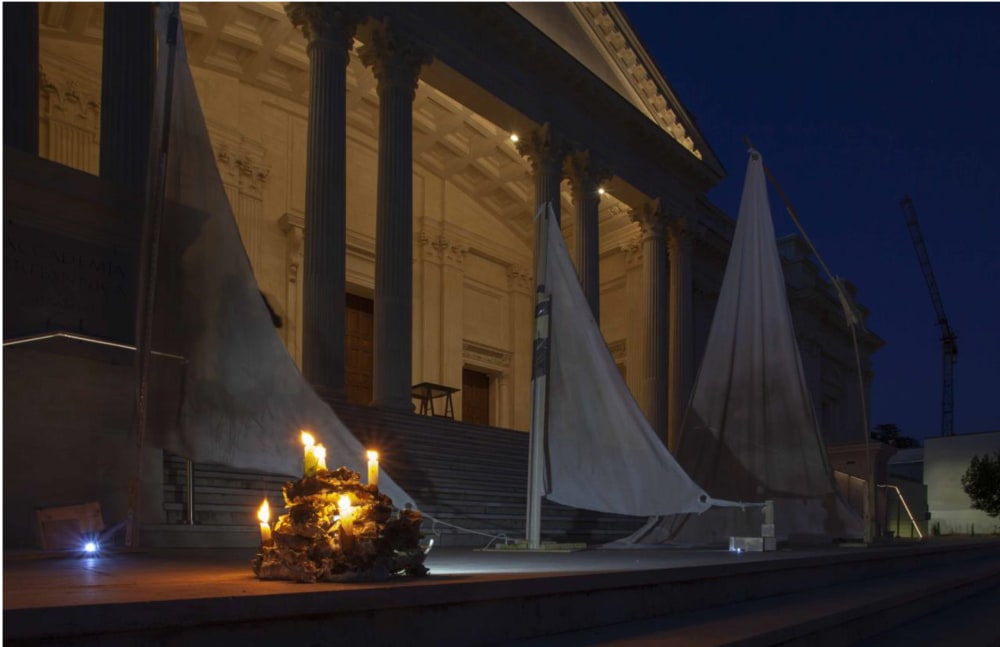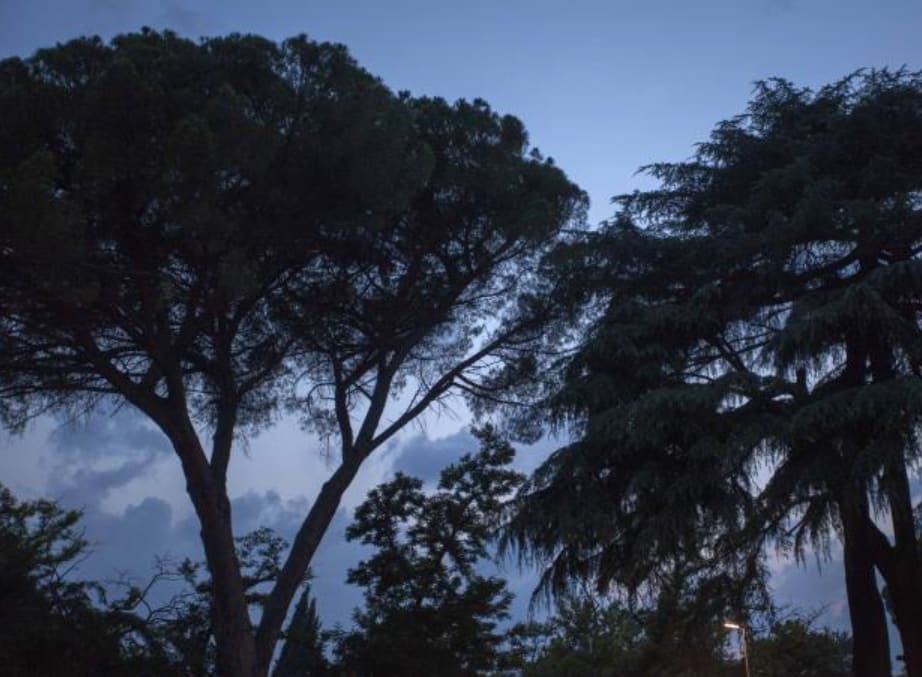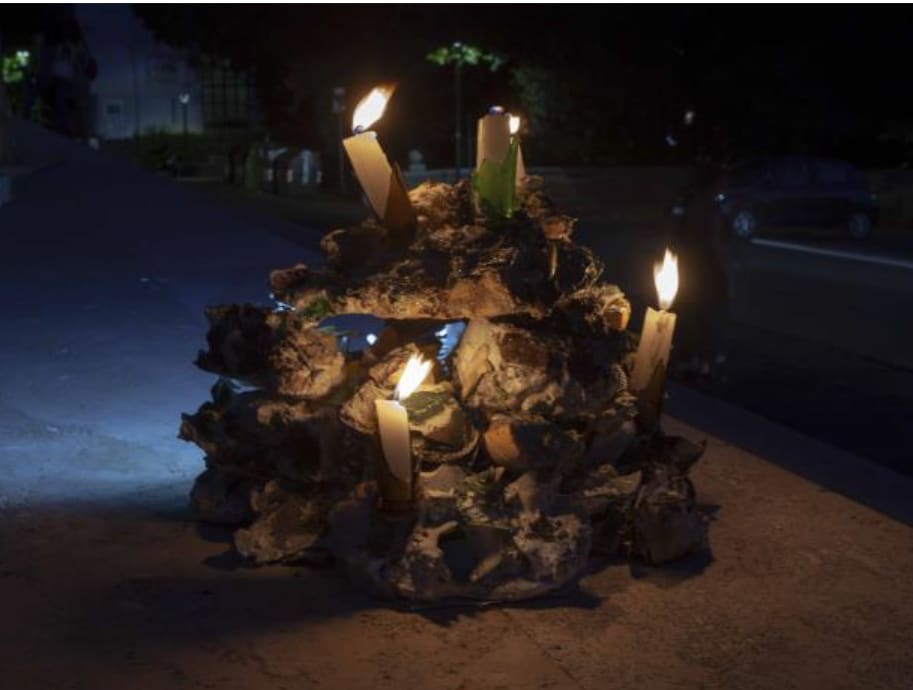The Mead Awards have been generously supported by Scott Mead and The Mead Family Foundation since 2013. The UAL Mead Rome Residency extends the Mead Awards programme to PhD students, providing them with a 4-week residency in a studio at the British School at Rome (BSR).
In the summer of 2019, Elin Karlsson, PhD student at London College of Communication was 1 of 3 to be selected for the residency.
Here Elin reports back on her experience.

I applied for the Mead residency at the British School at Rome to do my practice in new ‘everyday’; I wanted to spend time near Rome’s waters, the Tiber and the part of the Mediterranean downstream, the Tyrrhenian Sea. I knew about a promiscuous woman being banished to a remote island there
and had an inkling that the river would offer some treasures, some material to work with in my fictional writing and in my sculptural installation work. This is what happened.
Emperor Augustus banished his daughter Julia to a small island a few hours from Rome. Casa Julia stood on the most northern flank of Ventotene. Today there is a helipad by the ruin of her once majestic home, mocking her imprisonment. The spot is surrounded by chalky cliffs and just below the
steps connecting the hill to the beach some caves are carved into the earth. In the 17th century prostitutes were sent here to repent with the belief that being close to unspoilt nature could correct one’s moral compass. Today merchants and repairers of sails occupy the caves.
The Tiber runs in a ravine giving access to the river, 30 meters below the street. Down there the city feels strange and deserted. Picture this: a pair of junkies has left their unshielded syringes on a stone and will soon come back for another hit. There is broken glass all around. Bits of discarded clothing blend with mud and what could be a stripper’s pair of heels have been scattered on top of a grass tangle. The fluffy ducklings huddling with their parents are even unable to level the baseness of this place. Nature here is polluted, broken, grim, dirty. Swimming in the Tiber will make you sick.

My studio is a large and bright it has a mechanical skylight and tall windows. I sleep on a mezzanine level and can look down at my work from a balcony. The main door of my space takes me right out to the central courtyard.
The British School is a tranquil place one I would warmly recommend to anyone wishing to dedicate some time to their practice and to meet peers. It is the conversations around tea that really makes this place so special.

I talk about my collection of broken glass bottles and tidying them up to take them out of harm's way.
The Vestal Virgins used a mixture of holy water, salt and flour to bless animals before sacrifice. I make salt dough that I bake the broken glass into then make glass and resin barnacles that look like the rocky breakwater on Ventotene. I am well on my journey and have begun erecting a mast, there is some driftwood scattered on the shoreline and I have found a flat wooden base that I assemble to a structure that is standing tall. On the second week I set sail and cruise on gentile poetic waves. I am following a flow, capturing words in a piece I call ‘x marks the spot’. I spray the sails (there is now three) with a salty pigmented liquid and decide to show them at dusk before departure. I hope that by shining a light on them the glow will attract whatever insects still live in this polluted environment.
The glassy salt dough lumps make a cave to house the light. Five candles are lit to bless the moment and when the day turns to night the theatre begins. Not a single insect turns up.

